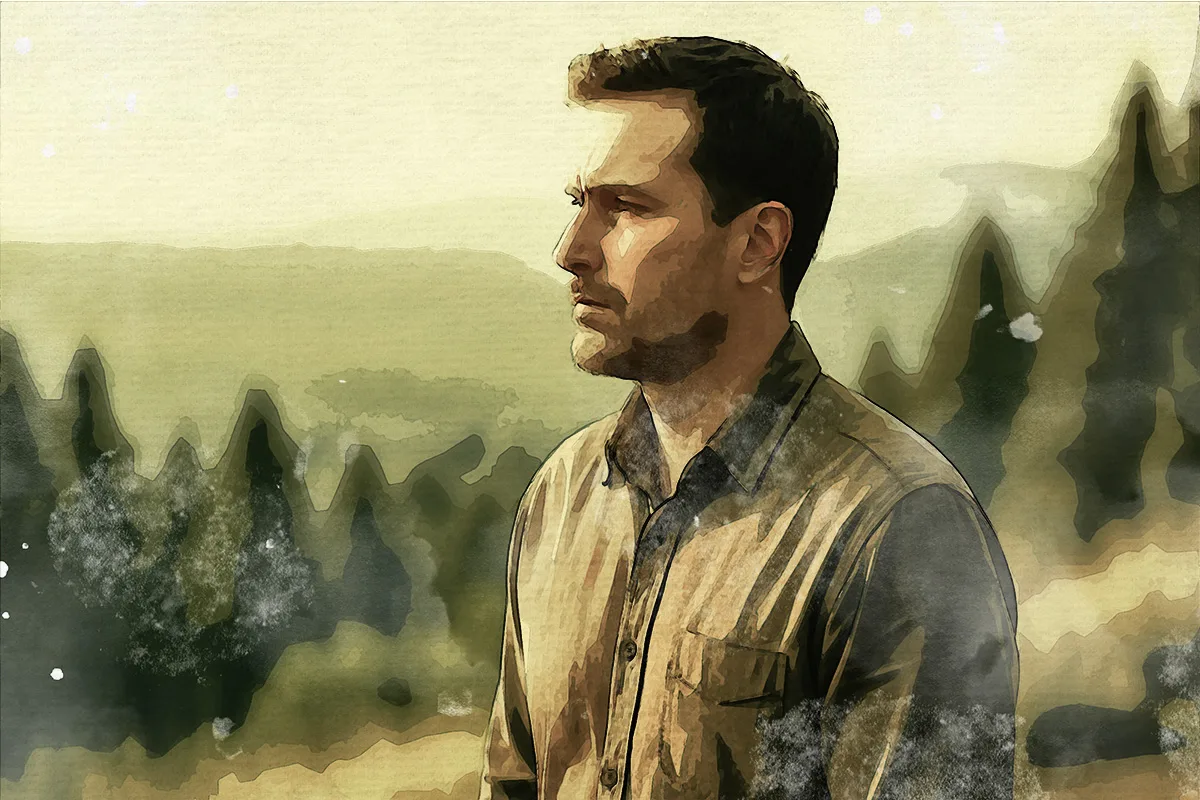Article Overview

By Ian Redfield, LMFTA
You’ve been told to “man up” your entire life, but silence doesn’t make the burden lighter—it just makes it lonelier. Spokane therapist Ian Redfield works with men who are tired of shouldering everything alone, offering a judgment-free space to redefine what strength really means and build the connected life you deserve.
You Don’t Have to “Man Up” Anymore
How many times in your life have you heard a variation of the phrase “man up”? My guess would be more times than we would prefer.
This is an expectation that becomes ingrained into our psyche at a young age, that often sticks with us into adulthood. For many of us, this idea manifests itself as stoicism—enduring our struggles in silence.
The truth is, silence doesn’t make the burden lighter. It just makes it lonelier.
My name is Ian Redfield, and I’m a Licensed Marriage & Family Therapist Associate (LMFTA) at Renewed Stories Counseling in Spokane, Washington. I’m committed to supporting the men in our community as they redefine their lives.
Why It’s Hard to Ask for Help (And Why You Should Anyway)
Finding a therapist that is suitable for your needs as a client can feel daunting, but I am here to support you throughout the journey. As men, I recognize that it can be uncomfortable to ask for help, but I aim to make that process as easy and seamless as it can be, because you deserve it.
I’ve heard from countless men that I have worked with that it was their first time being in therapy. As I begin to learn more about my clients, it tends to be revealed that these men needed support long prior to them ever entering our office.
My hope is that whether you’ve been struggling for 50 years, or 1 week, by seeking therapy you can live a happier, fuller, life.
Women are 1.5 to 2 times as likely to pursue therapy according to national mental health data, and yet, male suicide rates are approximately four times higher than that of females according to the CDC. I believe that speaks volumes to the societal stigma that men face regarding vulnerability.
Vulnerability is often equated to weakness, but in reality, research shows it’s linked to resilience and better relationships.
Ready to start a conversation? Contact our Spokane office to schedule a first session with Ian.
Who This Approach Serves
This isn’t just for men in crisis. It’s for men who:
- Feel pressure to keep it together but are struggling beneath the surface
- Want to show up better in their relationships
- Are tired of feeling angry, numb, or disconnected
- Are navigating big life changes (career, divorce, fatherhood, loss)
- Want to break old patterns and be more present with family
- Are considering therapy for the first time
If you’re wondering whether therapy is “for you,” that question itself might be your answer.
Practical Takeaways: Small Steps Toward Greater Emotional Health
You don’t have to overhaul your life overnight to begin to move toward greater emotional health. As with many things, this process begins with small and intentional steps.
1. Redefining Strength
Challenging past narratives that believe we must suffer in silence. Ask yourself, “Is staying silent amid struggle, strength? Or fear?”
I would argue, it is the latter. If courage is an important virtue to your character, then we must explore what being courageous means: facing yourself honestly.
2. Practice Small Truths
Rather than unloading our darkest moments all at once, start small. Whether it be with a friend, spouse, or coworker, speak honestly about how you feel.
Build honesty like a muscle. You would be surprised how many people are willing to listen when they are given the opportunity to.
3. Build an Emotional Vocabulary
Most often when I am working with male clients, the emotions I hear most are “angry,” “tired,” or they just simply state they are “fine.” Rarely do I hear, “I’m feeling anxious” or “I’m feeling scared.”
I believe it’s crucial to expand our range of emotional vocabulary, not only for others to better understand us, but so that we can better understand ourselves. The more accurate the word, the more power you have over it.
4. Therapy Isn’t Just for Crisis
No one would dispute the idea of living a happier, fuller life, and maybe therapy could be the small step to getting you there. There is this idea that therapy is solely for those in crisis, and that’s simply untrue.
My goal is to provide my clients with new perspective toward their struggles. This perspective could be regarding a deep-rooted trauma, or stress surrounding sudden adjustments in life. There is no issue, too big or too small, that is unworthy of support.
5. Find the Right Therapist
As much as it would be an honor to work alongside every individual experiencing crisis or struggle, I won’t be the right fit for everyone, and that would be dishonest to think I would be.
So, whether you need support from me in our office, or just need help finding what office makes you feel most at home, I strive to be that person for you.
These steps can help, but you don’t have to figure it out alone. Schedule a session with Ian at Renewed Stories Counseling in Spokane.
What Happens Next
If you’ve ever felt the weight of having to hold everything together, now is the time to reconsider. Reconsider what strength really means.
Seeking support is not about weakness, it is about reclaiming your truth and allowing yourself to live with greater expression and freedom. Once again, therapy does not diminish your masculinity, it redefines it. It is an expansion to what masculinity can be.
Imagine waking up, and that weight you bare feels lighter, and you feel more connected—all because you stopped carrying the burden alone.
By speaking your truth, you not only gain clarity for yourself, but you also set a powerful example for the men around you. Life is too short to live half-hidden behind silence. There may be other men in your life who are also hesitant to speak up. You gain the opportunity to become the catalyst for those around you.
Taking the step to engage in therapy is less about becoming someone different, and more about becoming the man you want to be, and I encourage all of those reading this to take that first step.
By stepping into our office, you aren’t giving something up, you are gaining more of yourself. This process is about deciding that your personal well-being, those you love, and your future are worth investing in.
The door to a more connected and fulfilling life is open, all it takes is the decision to walk through it.
Common Questions About Men’s Therapy
How do I know if I need therapy? If you’re asking the question, it’s worth exploring. You don’t need to wait until things are falling apart. Many of the men I work with wish they’d started sooner.
What if I’ve never been to therapy before? That’s completely normal. Most of the men I see are attending therapy for the first time. I’ll guide you through the process—there’s no “right way” to do this.
Will my information be confidential? Yes, absolutely. What you share stays between us, except in specific legal situations involving safety.
How long does therapy take? It depends on your goals. Some men come for a few months to work through something specific. Others engage longer to address deeper patterns. We’ll check in regularly about your progress.
Can therapy really help? I’ve witnessed it help countless men live fuller, more connected lives. The question isn’t whether therapy works—it’s whether you’re ready to invest in yourself.
About Ian Redfield, LMFTA
Ian is a Licensed Marriage & Family Therapist Associate at Renewed Stories Counseling in Spokane, Washington, specializing in men’s mental health. He creates a judgment-free space where men can explore what strength really means.
Related Resources
If you’re in crisis, call 988 Suicide & Crisis Lifeline. This article is for educational purposes and is not a substitute for professional treatment.


